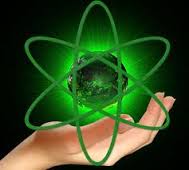
Nature of work
A nuclear engineer applies his/her knowledge of nuclear energy to solve engineering problems. He/she is well acquainted with and understand the properties of radiation and all the processes that produce nuclear energy. He/she Designs or develops nuclear equipment, such as reactor cores, radiation shielding, or associated instrumentation.Furthermore, he/she monitors nuclear facility operations to identify any design, construction, or operation practices that violate safety regulations and laws. A nuclear engineer examines nuclear accidents and gathers data that can be used to design preventive measures. In addition to that he/she writes operational instructions to be used in nuclear plant operation or in handling and disposing of nuclear waste.
Moreover, he/she directs operating or maintenance activities of operational nuclear power plants to ensure that he/she meets safety standards. He/she Performs experiments to test whether methods of using nuclear material, reclaiming nuclear fuel, or disposing of nuclear waste are acceptable. He/she handle taking corrective actions or ordering plant shutdowns in emergencies.
Finally, he/she also may develop or design cyclotrons, which produce a high-energy beam that the healthcare industry uses to treat cancerous tumors.
Environment of work
As a nuclear engineer his/her day-to-day work can vary greatly depending on which field he/she decides to enter. If he/she is employed in the design aspect of nuclear engineering, he/she can expect a 40 hour work week in a well lit office with occasional overtime to meet deadlines. Some will have a job that requires travelling quite often and will get to see other parts of the world. Other nuclear engineers will do most of their work in research facilities and laboratories; while those who work for companies in the power generation and supply industry will typically work in power plants. Professional life
Developments in nuclear medicine and diagnostic imaging also are expected to drive demand for nuclear engineers. These engineers will be needed to help build and operate cyclotrons, which produce a high-energy beam that the healthcare industry uses to treat cancerous tumors. Job prospects are expected to be relatively favorable for this occupation because many in the aging workforce will retire. The small number of nuclear engineering graduates is likely to be in rough balance with the number of job openings. In addition, training in new fields, such as nuclear medicine, should help to improve a person’s chances of finding a job.Range of typical starting salaries: 35000 SYP plus potential bonuses.
Getting the job
In order to become a nuclear engineer a candidate needs to at least have a bachelor's degree in science, physics, or engineering. Many jobs in the nuclear engineering field can require a master's degree and some may even require a doctoral degree. A nuclear engineer must have a bachelor’s degree in nuclear engineering. Employers also value experience, so cooperative-education engineering programs at universities are also valuable. Skills
There are many skills he/she needs to have and tries to improve, such as:Analytical-thinking skills: He/she should be able to identify design elements to help build facilities and equipment that produce material needed by various industries.
Detail oriented: He/she should pay close attentions to what is happening at all times and ensure that operations comply with all regulations and laws pertaining to the safety of workers and the environment.
Logical-thinking skills: He/she should be able to deliver information logically and clearly so that others can follow his/her written information and instructions.
Math skills: He/she uses the principals of calculus, trigonometry, and other advanced topics in mathematics for analysis, design, and troubleshooting in his/her work.
Teamwork: He/she works with mechanical engineers and electrical engineers therefore he/she should be able to incorporate systems designed by these other engineers into their own designs.
Sources and references
If a candidate needs any further information on what is included in this file, he/she can visit the following websites: www.aec.org.sy, Atomic Energy Commission of Syria
The Order of Syrian engineers, Damascus, Tel: 6627256
www.arab-eng.org, Arab Engineers Forum.
Arab Standard Classification of Occupations, 2008, Ed. Arab Labor Organization.
